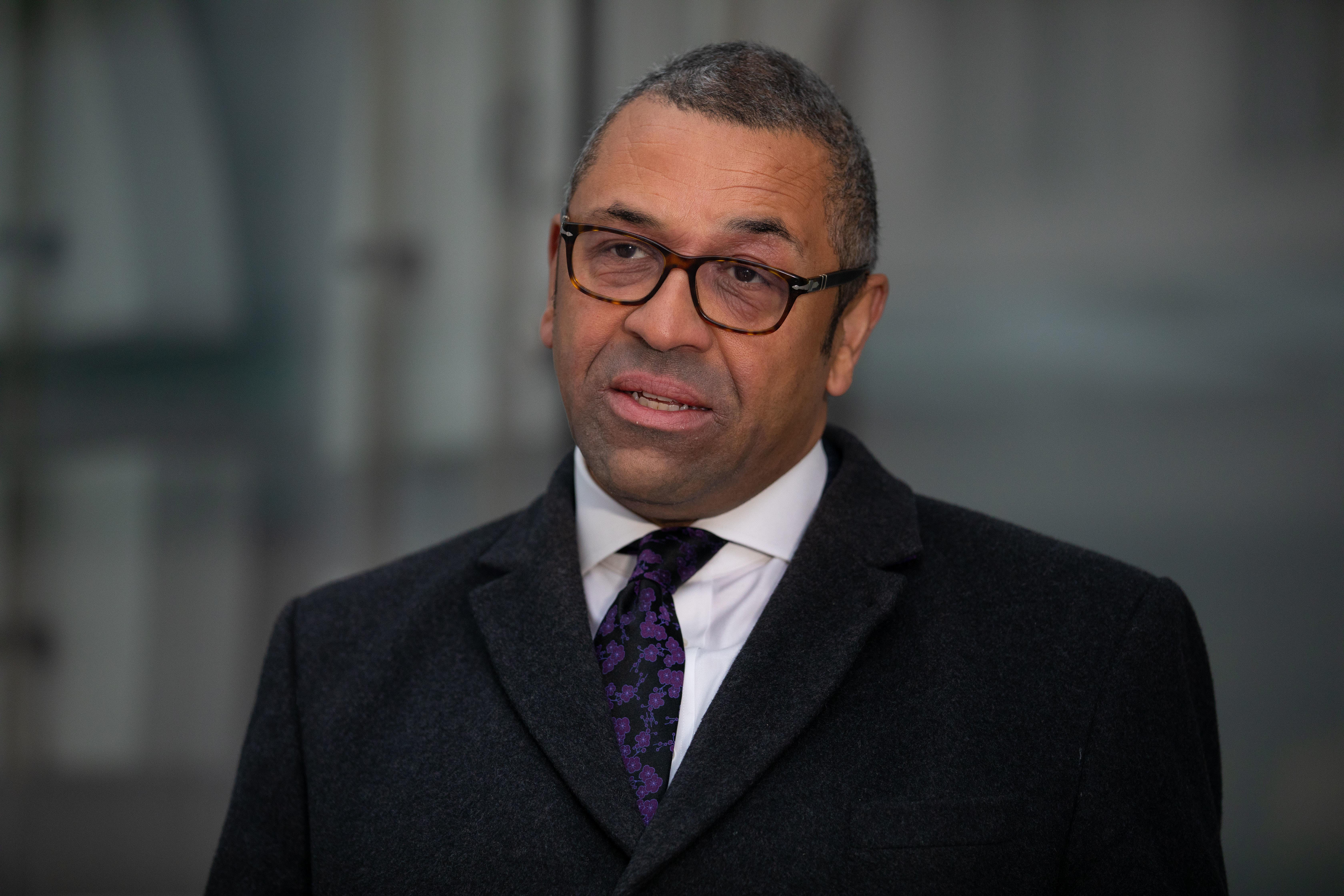Northern Ireland Protocol Bill will not be accelerated or slowed – Cleverly
He was speaking during a session of questions to Foreign, Commonwealth and Development Office ministers in the Commons.

Your support helps us to tell the story
From reproductive rights to climate change to Big Tech, The Independent is on the ground when the story is developing. Whether it's investigating the financials of Elon Musk's pro-Trump PAC or producing our latest documentary, 'The A Word', which shines a light on the American women fighting for reproductive rights, we know how important it is to parse out the facts from the messaging.
At such a critical moment in US history, we need reporters on the ground. Your donation allows us to keep sending journalists to speak to both sides of the story.
The Independent is trusted by Americans across the entire political spectrum. And unlike many other quality news outlets, we choose not to lock Americans out of our reporting and analysis with paywalls. We believe quality journalism should be available to everyone, paid for by those who can afford it.
Your support makes all the difference.Foreign Secretary James Cleverly has suggested the Government will not delay the Northern Ireland Protocol Bill, insisting the commitment he has made is for it to progress at a normal pace while negotiations with the EU continue.
Mr Cleverly said in the Commons that he told European Commission vice-president Maros Sefcovic “we would not either artificially accelerate that process or artificially hinder or retard that process”.
He was speaking during a session of questions to Foreign, Commonwealth and Development Office (FCDO) ministers in the House, where he was also warned by DUP MP Ian Paisley that the “EU smells weakness in this Government if they take their foot off the pedal”.
The exchanges follow a report in The Times newspaper that the Prime Minister has put the Bill “on ice”.
The protocol is aimed at avoiding a hard border with the Republic of Ireland, but it has introduced economic barriers on the movement of goods between Great Britain and Northern Ireland.
The UK Government is seeking to change the current system, either with a negotiated compromise with the European Union or through the Bill, which would empower ministers to scrap arrangements without the approval of Brussels.
In the Commons on Tuesday, Labour former minister Hilary Benn said: “We… read that the Northern Ireland Protocol Bill is on ice while the negotiations continue. Can the Foreign Secretary assure the House that if an agreement with the EU is reached, and we all hope it will happen, that the Northern Ireland Protocol Bill will be dropped?”
Mr Cleverly replied: “The Northern Ireland Protocol Bill exists for a reason. The commitment that I made to Maros Sefcovic and the conversations that I had with him and with others is that we would not either artificially accelerate that process or artificially hinder or retard that process.
“We have always said that our preferred option is through negotiations. We speak regularly, the tone is positive and I think that there is now an understanding that the concerns that we have raised, and have been raised particularly by the unionist community in Northern Ireland, are not confected, that they are real and that any agreement would need to address them.”
Mr Paisley, the DUP for North Antrim, urged Mr Cleverly not to take the Northern Ireland Protocol Bill off the table.
He said: “Does he not believe that the EU smells weakness in this Government if they take their foot off the pedal with regards to the Protocol Bill in the other place?
“I would encourage the Foreign Secretary to press on with the Protocol Bill”
Elsewhere in the session, addressing an unrelated question, Foreign Office minister Andrew Mitchell said his department intends to establish a “centre of expertise to support democrat governance around the world”.
He told MPs: “Officials have assessed the merits of establishing an FCDO centre of expertise to support democratic governance around the world.
“Funding permitting, we fully intend to establish one to address the democratic deficit the world is facing.”